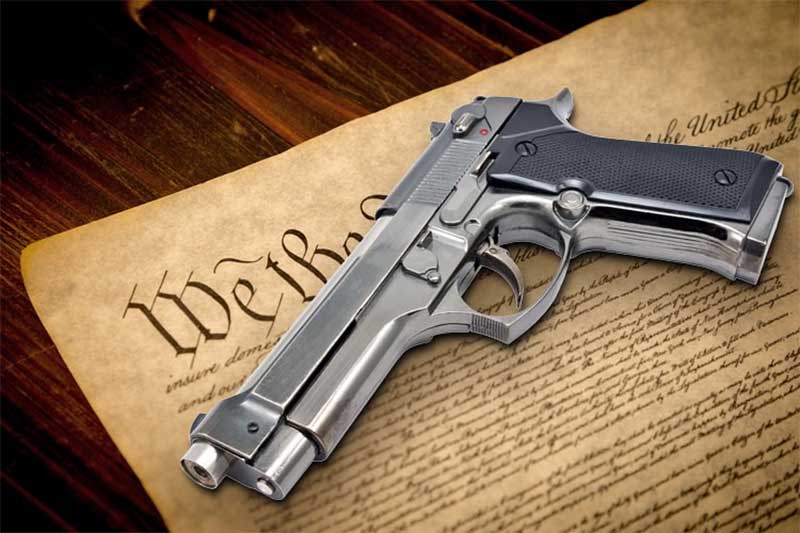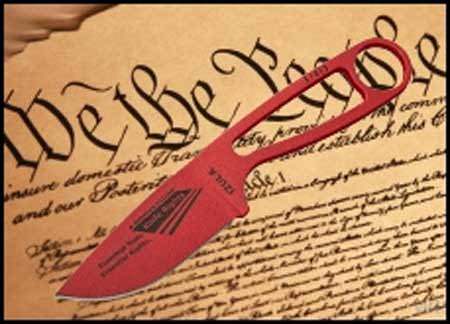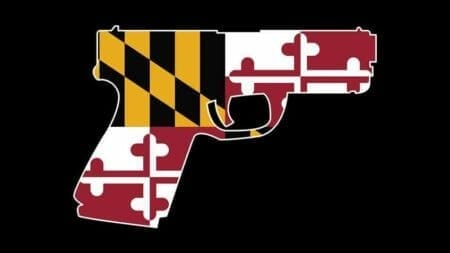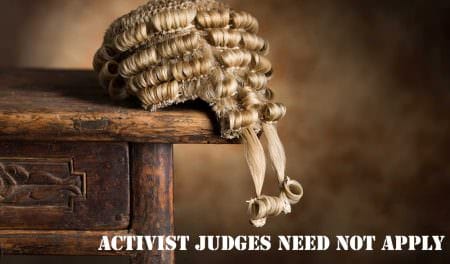
Washington, DC – -(AmmoLand.com)- Back in 1995, Bryan Range pleaded guilty to fraudulently obtaining $2,458 in food stamps by misrepresenting his income. He returned the money, paid a $100 fine and $288 in court costs, and served three years of probation.
Although Range did not realize it, that Pennsylvania misdemeanor conviction also came with a lifelong penalty: He lost his constitutional right to keep and bear arms.
His case, which the U.S. Court of Appeals for the 3rd Circuit will hear next month, poses the question of whether that policy, which prohibits gun ownership by millions of Americans with no history of violence, violates the Second Amendment.
Federal law generally makes it a felony to purchase or possess a gun if you have been convicted of a crime punishable by more than a year of incarceration. When a state classifies a crime as a misdemeanor, that disqualification applies if the maximum penalty exceeds two years.
Range’s crime was punishable by up to five years in prison, which meant he was no longer allowed to buy or own a firearm. When he tried to buy a deer-hunting rifle in 1998, he failed the background check.
Range figured that must have been a mistake. His wife bought him a rifle, then bought him another after the first one was destroyed in a house fire. Range later tried again to buy a gun but was again turned away, which prompted him to take a closer look at the federal prohibition, which is commonly described as applying to “felons.”
After discovering that he was a “prohibited person” even though he had not been convicted of a felony, Range sold his hunting rifle to a gun dealer. But for that law, he says, he would have kept the rifle and might also have bought a shotgun for home defense.
Range’s initial confusion about his status is not surprising, since the rule he inadvertently violated does not make much sense. Although it is ostensibly aimed at protecting public safety, it does not require any evidence of violent tendencies.
In a Nov. 16 decision that was vacated last week, a 3rd Circuit panel said that policy nevertheless is “consistent with the Nation’s historical tradition of firearm regulation” — the constitutional test that the Supreme Court says gun laws must pass. Surveying the history of status-based gun prohibitions from 17th-century England through ratification of the Second Amendment, the panel perceived a pattern of disarming people “who did not respect the law,” whether or not they posed a violent threat.
A brief that the Firearms Policy Coalition submitted on Range’s behalf reaches a strikingly different conclusion. “Historically, firearm prohibitions applied to dangerous persons,” the brief says. “There is no tradition in American history of banning peaceable citizens from owning firearms.”
That take jibes with a 2019 dissent that Supreme Court Justice Amy Coney Barrett wrote as a judge on the U.S. Court of Appeals for the 7th Circuit. “Legislatures have the power to prohibit dangerous people from possessing guns,” she said. “But that power extends only to people who are (SET ITAL) dangerous.(END ITAL) ”
Barrett thought a felony mail fraud conviction was not enough to justify the permanent loss of Second Amendment rights. If the full 3rd Circuit agrees with Barrett’s reasoning after it rehears Range’s case, it is apt to conclude that the same goes for his misdemeanor welfare fraud conviction.
Although the Supreme Court has described “prohibitions on the possession of firearms by felons” as “longstanding” and “presumptively lawful,” states did not begin imposing such restrictions until after World War I. Even then, the prohibitions were much narrower than the current federal rule, did not necessarily cover all firearms and often allowed for the restoration of gun rights.
The original federal prohibition, enacted in 1938, applied only to specific “crime(s) of violence.”
That narrower focus, which would allow someone like Range to use guns for hunting and self-defense, is easier to defend than the “wildly overinclusive” ban that rightly troubled Barrett.
About Jacob Sullum
Jacob Sullum is a senior editor at Reason magazine. Follow him on Twitter: @JacobSullum. During two decades in journalism, he has relentlessly skewered authoritarians of the left and the right, making the case for shrinking the realm of politics and expanding the realm of individual choice. Jacobs’ work appears here at AmmoLand News through a license with Creators Syndicate.







if you are not in prison, are you a dangerous person? if you committed a homicide isn’t your release an indication that you are not a dangerous person? would a dangerous person not be entitled to defend themselves using a firearm if their life was in danger?
there are waaaay too many laws that negatively affect citizens that need to be reviewed and disposed of.
Ask this to Ted Nugent and ask him what he’d do to a 5 time violent felon that was raping an old lady… Ask Ole Uncle Ted what HIS solution would be about a felon that is “loose on the streets time after time after God blessed time”? I’m right there along side of him!
https://rockcelebrities.net/ted-nugent-shares-the-solution-to-end-almost-all-violent-crimes-in-america/
As risky as it is, the wording of the Second Amendment makes no distinction in excluding anyone because of past behavior. “The Right of the People” is pretty clear. Futher on, elsewhere within Article 1, Section 2 the term “Free Person” is mentioned; those not under bondage nor servitude. And not that I’m suggesting anyone Dangerous be released but… If a person has completed his court ordered sentence and freed, why shouldn’t all Constitutional Rights be automatically restored? Why is the Second specifically limited when other Rights listed are not?
If they can’t be trusted with firearms after serving their sentence, they shouldn’t be released into society, because they haven’t changed.
If they just read the constitution they would see that no crime justifies the loss of any right after your debt for said crime has been paid.
And with the penalty of death we just let the taxpayers spend BILLIONS keeping these POS alive for upwards of 20 plus years? Thank God that child predators are swiftly dealt with once released into general population! “Vengence is mine sayeth the Lord!”
https://deathpenaltyinfo.org/stories/history-of-the-death-penalty-timeline
“…the right of the people to keep and bear arms shall not be infringed.”
I don’t see/read an exception in that statement, and for most of America’s history, there wasn’t an exception. The exceptions came later.
I look at it like this, if someone’s a violent felon, and their risk of criminal recidivism that high, then they shouldn’t be released in the first place.
In order for THIS to take place, ALL of the variables / moving parts of the justice system would have to be working strictly by the Constitution and current jurisprudence. From the prosecutor, witnesses, judge, ALL the jury members, plaintiff(s) and defendant(s). Then you have a guy like Al Capone that comes along and in one way or another taints the judge or jury, etc.
There should be absolutely no gun restrictions during any hunting seasons no matter what, because lets face it, people have to eat. An individual has a responsibility/obligations to themselves and their families criminal or not, and should have a “God” given right to self defense.
After watching the graft with member’s money and the board
eliminating anyone who mentions it, I won’t even round-up
38 cents on an on-line order to support them. I think I saw
that one company had donated 22 million to the NRA, and
thought that might not even cover the big man’s wardrobe
perk.
I can see arguments for the position that once you’ve served your term restrictions should be lifted.
I can see arguments for the position that post-release restrictions should be applied only to violent felons.
I can see arguments for the position that restrictions should be applied to all felons, and that restorations of gun rights should be done only through an appeals process after sentence+probation has been served.
I can see no argument for the position that restrictions should be applied to all felons, regardless of violence, with no mechanism for restoration.
Yet it’s this last where we are, today.
I’ve got one for you. A 22 year old heroin addict snorts his crap, goes off and either trespasses onto somebody’s private property or a business, takes an air-soft pistol (Looks real) and threatens to kill people because they looked at hi funny because he’s a bum in every sense of the word, drunk or drugged up, stinking to high heaven to where the stench will linger onto you if you get within 5 feet of him and he’s wandering into areas of society where he is likely unaccepted and asked too leave. BOOM! 6 months county on brandishing, domestic… Read more »
if your friend is on paper (probation, suspended sentence, ect.) he is not a Free Person constitutionally.
Didn’t we used to solve these repeat felon cases by roasting felons over an open flame? Or hang em’? Shoot em’?
If I were to agree with you, we’d need to have far fewer felonies.
Should it really be a federal felony to sell a high-flow shower head?